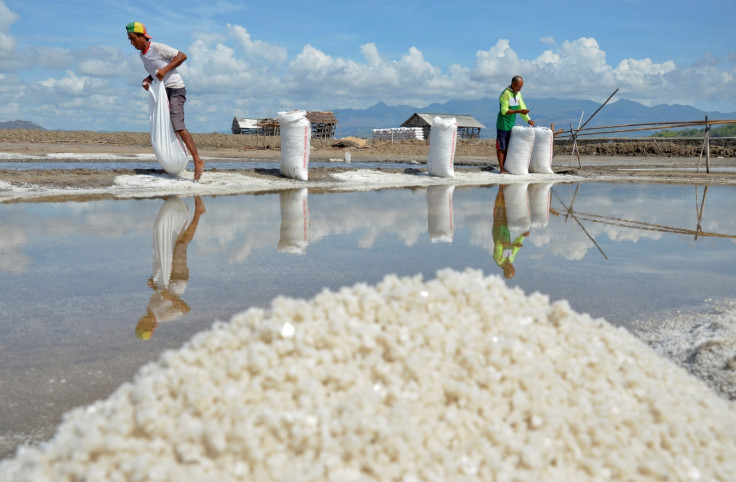Indonesia hit by severe salt scarcity prompting imports from Australia
Salt prices have shot up four times in some parts of Indonesia following the scarcity.

Indonesia has been hit by a severe salt scarcity forcing the country to import the commodity from Australia. After weeks of severe shortage, the government has allowed the state-owned salt producer PT Garam to import 75,000 tonnes of raw salt relaxing strict controls that were in force.
A prolonged wet spell has hit the domestic production of salt hard. Salt prices have doubled in the last two months and in some parts of the country it has shot up by four times. Annually, the country requires about 4.3 million tonnes of salt including industrialised salt with sodium chloride content of above 97%.
"In 2016, we allocated 226,000 tonnes of salt imports, so we still have room. When the harvest returns to normal, we will stop importing," the trade ministry's foreign trade director general, Oke Nurwan, told reporters.
Following the runaway rise, the government is considering a cap on the market price of salt. Authorities hope that domestic production will pick up as soon as imports from Australia land in the country.
Officials have also urged the government to consider building salt factories to ensure the end product is up to consumption standards. According to the maritime affairs and fisheries ministry, the normal monthly salt production of about 166,000 tonnes has plunged to nearly 6,200 tonnes.
In 2015, Indonesia, which is endowed with abundant sunlight, the sea and long coastlines, imposed strict curbs on salt imports in order to protect the domestic industry. This has backfired after adverse weather conditions badly affected production in the main salt producing districts of Sumenep and Pamekasan in East Java.
"We [now] often have to harvest salt two or three days earlier than we normally do. Usually, we can get 20 tonnes, but because of the early harvest, we can only get one tonne. Still, that's better than rains destroying all salt," a salt farmer, Mat Riyanto, told the Jakarta Globe.
© Copyright IBTimes 2025. All rights reserved.





















